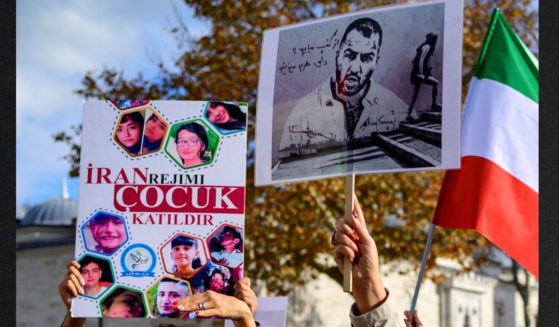Schoolboys Returned After Week of Captivity at Hands of Boko Haram Insurgents
Bleary and barefoot after a week of captivity, more than 300 Nigerian schoolboys, freed after being kidnapped in an attack on their school, were welcomed by the governor of Katsina state on Friday.
The boys will be reunited with their families after being examined for any injuries.
The relatively quick release of the more than 330 boys took place after a prompt response by the government, which appears to have learned from earlier mass school abductions that did not have such a happy result.
The students’ nightmare began on the night of Dec. 11 when they were seized by men armed with AK-47 rifles from the all-boys Government Science Secondary School in Kankara village in northwestern Nigeria.
They were marched through a forest and forced to lie in the dirt amid gun battles between their captors and the troops pursuing them.
Nigeria’s Boko Haram jihadist rebels claimed responsibility for the abduction, saying they attacked the school because they believe Western education is un-Islamic.
As the boys’ parents anxiously awaited any news, many in Nigeria were bracing for a long, drawn-out hostage situation. Many feared the boys would be forced to become child soldiers for Boko Haram.
But the kidnapping reached an unexpectedly satisfactory ending when Katsina governor Aminu Bella Masari announced the release of 344 boys late Thursday night.
“I think we can say … we have recovered most of the boys, if not all of them,” he said.
Masari told The Associated Press that no ransom was paid to secure the boys’ freedom. It’s not known if other concessions were made.
Masari said the government will work with the police to increase security at the Kankara school and other schools. Only one policeman was working at the school when it was attacked, according to the students.
The schoolboys’ abduction was a chilling reminder of Boko Haram’s previous attacks on schools, especially the April 2014 mass kidnapping by Boko Haram of more than 270 schoolgirls from a government boarding school in Chibok in northeastern Borno state. About 100 of those girls are still missing.
“The difference, we know in this case, is that the government moved faster,” Bulama Bukarti, an analyst on sub-Saharan Africa at the Tony Blair Institute, said.
In Chibok, it took weeks before the government acknowledged that the girls had been kidnapped and took action. During that time, Boko Haram had the opportunity to put the girls into smaller groups and move them far away so it would be difficult to find them.
This time, the government deployed forces quickly after the boys’ kidnapping and the abductors rapidly found themselves surrounded, Bukarti said.
Their release is “a fantastic story at the end of an awful week,” he said. “Parents will be reunited with their loved ones … all of Nigeria will breathe a sigh of relief for a good ending.”
UNICEF Nigeria Representative Peter Hawkins called on the attackers to release any other children who may be held from this or other attacks.
“Schools should be safe. Children should never be the target of attack and yet, far too often in Nigeria, they are precisely that — victims of attacks on their schools,” he said.
He called on Nigeria’s government to put better interventions in place “to ensure that schools are safe and that all Nigerian children can learn without fear.”
President Muhamadu Buhari welcomed the boys’ release and stated that his government needs to do more to make schools secure from such attacks.
However, many thorny problems remain.
The kidnapping shows that Boko Haram has been able to recruit armed gangs in Nigeria’s northwest, a worrying sign as the criminal gangs have increased attacks in the region this year, killing more than 1,100.
While the bandits don’t have ideological motivations, Bukarti said, it has become clear that Boko Haram’s leader, Abubakar Shekau, has been able to make alliances with some of them.
Bukarti says that he would go as far as calling some of these local gangs Boko Haram associates now.
The Islamic extremist group may well extend their reach into the northwest, he said, adding that the kidnapping also gave them publicity.
“This was a major propaganda point and that’s what Boko Haram and terrorist groups survive on,” he said.
Though the government reacted fast to this kidnapping — they had a rescue mission organized by the next day — criticism remains over the government’s handling of violence.
Many Nigerians blame Buhari for the security lapses in the country, and the opposition People’s Democratic Party says the abduction of the students raises serious questions about the government’s capacity to fight insurgency.
The PDP said President Buhari’s inability to manage Nigeria’s security has opened the country “for terrorists, bandits, vandals, and insurgents.”
The Western Journal has reviewed this Associated Press story and may have altered it prior to publication to ensure that it meets our editorial standards.
Truth and Accuracy
We are committed to truth and accuracy in all of our journalism. Read our editorial standards.












